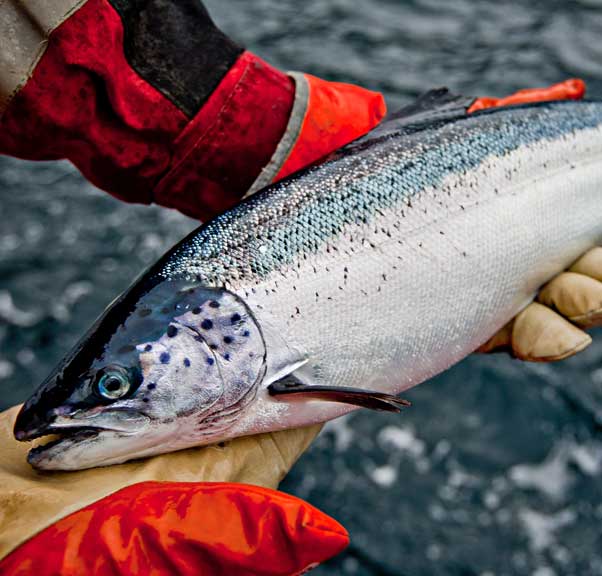With the federal government’s commitment to transform the BC salmon farming sector by 2025, the BC Ministry of Agriculture and Food responded with a report outlining some challenges to the development of recirculating aquaculture systems (RAS).
The report says that regulatory uncertainty, high capital cost, low returns on investment, and lack of incentive to locate facilities in the province are some of the main restraints
Brock Thomson, Innovation Director for Cermaq Canada, says they don’t see moving to land-based production as a viable solution, given the constraints.
“We are currently trialing new technologies such as semi-closed containment and hybrid systems to systematically reduce interactions with wild salmon and improve fish health,” says Thomson.
“We understand land-based technology, but given the constraints faced, we do not see fully moving to land-based production as a viable solution in the remote, coastal communities where we farm.”
RAS production in the province currently represents less than one per cent of farmed salmon production, where to be able to move the current levels of ocean farm production, it would require an investment of between $1.8 billion to $2.2 billion.
Brian Kingzett, executive director for the BC Salmon Farmers Association says the release supports what salmon farmers have been saying for years.
“Our sector strongly supports RAS technology – in fact we are experts at using RAS to grow salmon – but to move the entire sector on land isn’t a realistic option, nor is it required to protect wild salmon,” says Kingzett.
“The federal government’s numerous science assessments have confirmed Atlantic salmon farms pose no more than a minimal risk to wild salmon abundance and diversity under the current fish health management practices.”
The province adds the profitable production of market-sized salmon on a commercial scale remains elusive.




